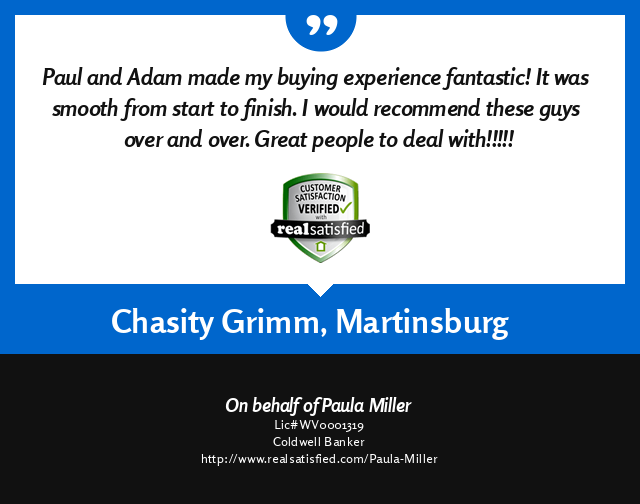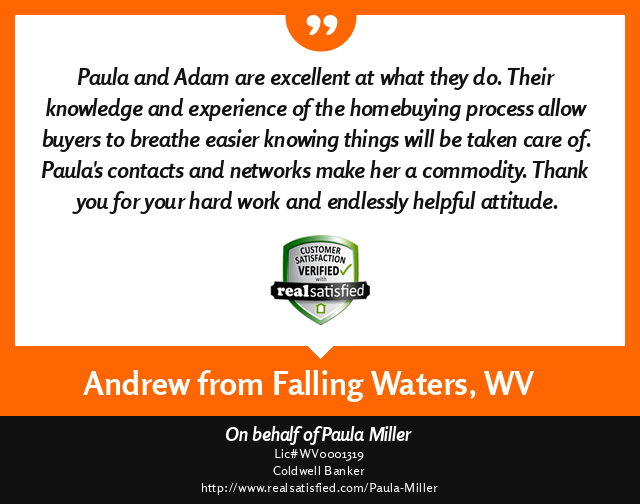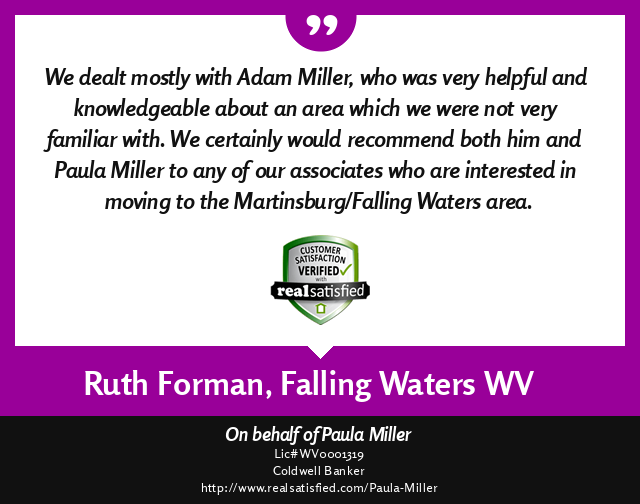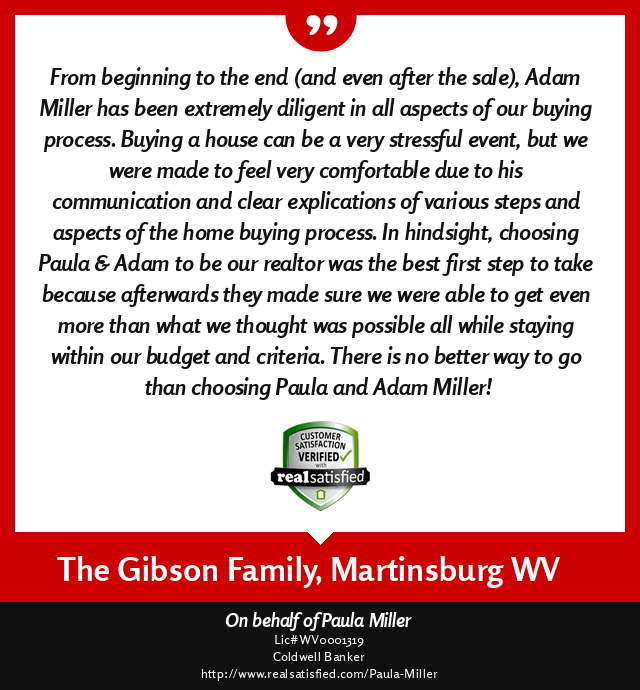Adam Miller | REALTOR®
A Borrower's Guide to Mortgage
Top Three Factors to Qualify for a Loan
1. Verified Income - Typically mortgage officers look for a two year job history verified through tax returns. Due to different reporting standards and unreliable sources of income, self-employed and commission-based employees are often the two most difficult income sources to verify. This is a leading cause for obtaining an unconventional loan that does not adhere to the same lending guidelines as conventional, government backed securities through Fannie Mae or Freddie Mac.
2. Credit Rating - The consumer credit rating is often considered the most important personal financial factor when obtaining financing. A high credit score generally leads to lower interest rates, a wider range of loan programs, and fewer restrictions during application. A credit rating of 740 or higher should make available all loan products and terms available. Scores over 700 should have access to all available loan programs, but interest rates and other terms may rise. Scores lower than 700 may find that many loan programs are unavailable and will most likely find higher interest rates. Typically lenders prefer a 640 or better credit score, however there may be some lenders who will go as low as 580 depending on other factors.
3. Debt-to-Income Ratio (DTI) - Technically there are two parts to a DTI ratio - the front-end and the back-end. The front-end ratio is the percentage of income going toward housing expenses, while the back-end ratio is the percentage of income obligated to all other monthly debt as well as housing expenses. The front-end should be no higher than 28%, but the back-end is what most conversations will consider a debt-to-income ratio. So what's the magic DTI number? Well, a 43% debt to income is the lowest that a borrower can have for a Qualified Loan - which is simply a loan that has met a defined set of minimum requirements, but certain lenders will consider a 40/60 debt-to-income split or lower.
Other Contributing Factors
1. Occupancy & Property Type - Lenders feel that there is the least amount of risk when financing a single family home which is owner-occupied. Second homes or vacation homes can be more difficult to finance but should come with the same rates as a primary residence, while rental properties will come with higher interest rates. Multi-unit properties are seen as the most risky due to sometimes lengthy vacancy periods, or poorly managed condominium associations.
2. Loan Product & Amount - The duration of a loan has a major impact on the exceptions available. A traditional 30-year fixed loan will come with higher interest rates, but with less risk. Whereas a 5-year adjustable rate mortgage (ARM) may come with lower initial interest rates but are seen as more risky investments due to the possibility of higher rates in the future. If you are looking for more extra benefits on top of reduced rates, then you need to be willing to spend over $417,000. Loans under this amount qualify for Freddie Mac and Fannie Mae funds and are likely to follow certain parameters. A mortgage over $417,000 will be funded through the lender's affiliate resources and will have more leniency with terms and exceptions.
3. Reserve Funds - Unfortunately there are events in our lives that are beyond our control which have a significant impact on our financial stability. The loss of a job, an illness in the family, or even a car crash are all great examples. For this very reason it is important to lenders that there are additional funds available in excess of your immediate debts. At least two months of mortgage payments are expected, and it is looked at favorably if reserve savings are available for six months or longer.
4. Down Payment - While there are programs that require no money for down payment, it is typically recommended that at least 20% of the financed price be paid out of pocket. A 20% down payment is sometimes required in order to avoid additional fees for PMI (Private Mortgage Insurance) which cover a lender's investment.
Things Not to Do
1. Do Not Quit Your Job - Losing a job may be outside of your control, but quitting your job prior to settlement is unacceptable. Both circumstances will lead to the loss of financing, preventing your loan from closing. Mortgage brokers are looking out for the best interest of all parties in this event. They want you to be able to make payments to cover the financial risk that they took when lending. Consequentially, if you are unable to make regular payments then your ability to obtain financing will dissolve because your credit score will be negatively affected by foreclosure or bankruptcy.
2. Do Not Open New Credit Cards - You should not submit applications for any other type of loan when applying for a mortgage. The addition of a credit card is a possible line of debt. This additional risk can negatively impact your credit score, so every time you open a new credit card your score takes a hit.
3. Do Not Make A Large Purchase - There are several reasons that you should not go out and purchase that big ticket item. Similarly to opening a new line of credit, your rating may go down especially if there is financing involved. Making a large withdrawal from savings also decreases your purchasing power and the amount of reserve funds available, affecting your credit-worthiness.
4. Do Not Miss A Deadline - There is nothing that will impact your credit more than a payment that is later than thirty days. Missing multiple payments will almost certainly drop your credit score, as much as a hundred points.
5. Do Not Mislead - All circumstances must be fully disclosed prior to settlement. Misrepresenting your debts or assets, failing to report a change in job status, or purposefully manipulating the mortgage process by any other means will lead to the denial of a loan, and in extreme cases, criminal charges for fraud.
Things You Should Do
1. Make a Downpayment - Avoid PMI - As discussed above, it is often a requirement of the loan to commit a certain amount of personal assets in order to avoid additional funding fees. There are loans that require no down payment, however, it is still a wise choice to place a large down payment towards your purchase of real estate. Up-front payments result in a lesser amount financed which will lead to huge savings in interest charges. A down payment reduces your principal borrowed which reduces the amount of money on which interest can be charged.
2. Get Pre-qualified - A pre-qualification from a lender removes most of the guesswork when dealing with a home purchase. A pre-qualification should reveal an expectation of your maximum price range, current interest rates, and an approximation of monthly payments. A pre-qualification also serves as a quick check that buyer financing will be available if an offer is accepted.
3. Get Pre-approved - Better than a pre-qualification is a pre-approval. Once you have decided on a loan program, work with your lender to more accurately analyze your financial situation to ensure that a loan will be available when an offer is made.
4. Take Advantage of Programs and Incentives - First-time buyer loans, veterans assistance, public employee programs, physicians loans, state and federal grants, employee relocation programs, and mover's assistance are just some of the incentives offered depending on your qualifications. There is no reason not to shop around for the best deal - one that will maximize your buying power while easing the stress of monthly mortgage payments.
5. Check and Improve Credit Score - This is not recommended if you are planning on finding a loan within the next 6 months because an account in dispute may delay or even kill the loan, but long-term monitoring and improvement of your credit score is paramount to your financial stability and credit-worthiness. For more tips on how to improve your credit score consult a financial adviser.
A Borrower's Guide to Mortgage | Written by Adam Miller | www.adammiller.realtor
Coldwell Banker Premier Homes | Shepherdstown, WV






